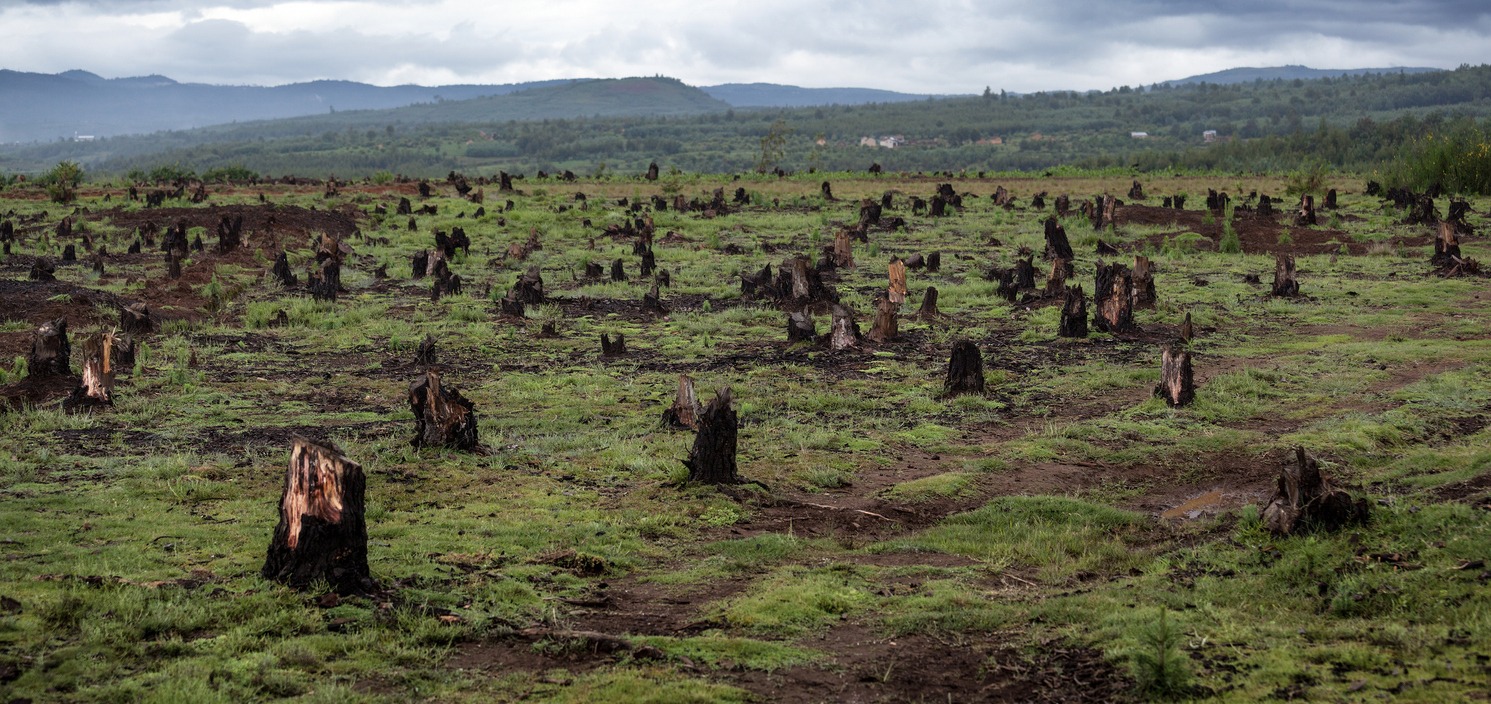“It is with deep concern that we follow the escalating crisis of deforestation and forest fires in Brazil and Bolivia. As investors, who have a fiduciary duty to act in the best long-term interests of our beneficiaries, we recognise the crucial role that tropical forests play in tackling climate change, protecting biodiversity and ensuring ecosystem services,” reads the opening paragraphic of a statement signed by 230 institutional investors managing a combined $16.2 trillion in assets.
The statement calls on companies to tackle the financial risks associated with ongoing deforestation as well as market and reputational risks within their operations and global supply chains.
It specifically asks companies to:
- Publicly disclose and implement a commodity-specific “no deforestation” policy with quantifiable, time-bound commitments covering the entire supply chain and sourcing geographies;
- Establish a transparent monitoring and verification system for supplier compliance with the company’s “no deforestation” policy.
- Report annually on deforestation risk exposure and management, including progress towards the company’s “no deforestation” policy.
Sustainability nonprofit organization Ceres, which works with influential investors and companies to build leadership and drive sustainability solutions in the economy, helped coordinate the statement alongside PRI, which works with its international network of more than 2,500 signatories, representing over $86.3 trillion in assets, to put the six Principles for Responsible Investment into practice.
“Institutional investors increasingly recognize that deforestation creates material financial risks, including reputational and regulatory risks for companies, and that it exacerbates systemic risk across portfolios by contributing to climate change,” said Ceres CEO and president Mindy Lubber in the press release announcing the statement. “Therefore, companies must demonstrate to investors that they can hold their global suppliers accountable for disclosing and eliminating these risks.”
Many of the investors who have signed the statement are involved in a collaborative investor engagement initiative with global companies exposed directly or indirectly to soy and cattle from South America. The Investor Initiative for Sustainable Forests (IISF), led by PRI and Ceres, aims to transform industry practices to eliminate deforestation from cattle and soy supply chains.
500 companies taking action
Although nearly 500 companies are taking action on their deforestation impact, according to Ceres, recent research suggests that few companies are on track to reach their goals. Cargill, which was one of five grain trading houses slapped with a $29 million fine last year for engaging in activities related to illegal deforestation, pledged a $30 million investment to fight deforestation in Brazil’s Cerrado region. It was recently named “The Worst Company in the World” by environmental protection lobbying group Mighty Earth, raising questions about whether sustainability initiatives are trying to promise too much too soon. Or, perhaps the issue is that consumers are impatient and unrealistic about the timeline for achieving sustainability at the global scale.
Still, corporate inaction on deforestation amounts to $30 billion in losses, according to a recent report from environmental nonprofit CDP. Fewer than 30% of commodity-dependent companies in fast-moving consumer goods, food and beverage, retail, and other sectors track or disclose information relating to deforestation in their supply chains, it concluded.
The report lists major brands like The Kraft Heinz Company and Avon as being unaware about the risks that deforestation poses to their commodity-dependent supply chains. PepsiCo is one of the most engaged companies, on the other hand, self-identifying these kinds of business risks.
Tech as a tool to help mitigate deforestation
The coalition also notes that technology may have a profound role to play in alleviating deforestation pressure.
“The gargantuan biodiversity of the Amazon forest calls for innovative solutions to harness its biological assets,” said Professor Carlos Nobre, Senior Researcher with the University of São Paulo’s Institute of Advanced Studies, in the statement. “The use of modern technologies can help to keep the forest standing and preserve its vital role storing carbon, protecting species and providing invaluable ecosystems services for the planet. Investors have a critical role to play in developing and harnessing these technologies to help preserve the Amazon forest.”
Cargill has already caught on to the promising role that technology can play. Just this month it participated in a $5.8 million Series A round for Agrosmart, a digital agriculture platform that uses AI to make agricultural predictions based on data from soil, weather conditions, and crops. It also counts Coca-Cola and Syngenta among its clientele.
Other startups like Ecosia, a German company with an internet search engine recently stated that it has raked in enough money to plant 50 million trees. This translates to roughly 2.5 million tonnes of Co2 being removed from the atmosphere. Every second, the company plants a tree in Kenya, Brazil, Indonesia, Spain, Tanzania, Madagascar, Colombia, Peru, Senegal, Burkina Faso, Haiti, Morocco, Ethiopia, Uganda, Ghana and Nicaragua.
Click here to read a list of technologies that could help remedy deforestation from my colleague Joe.





